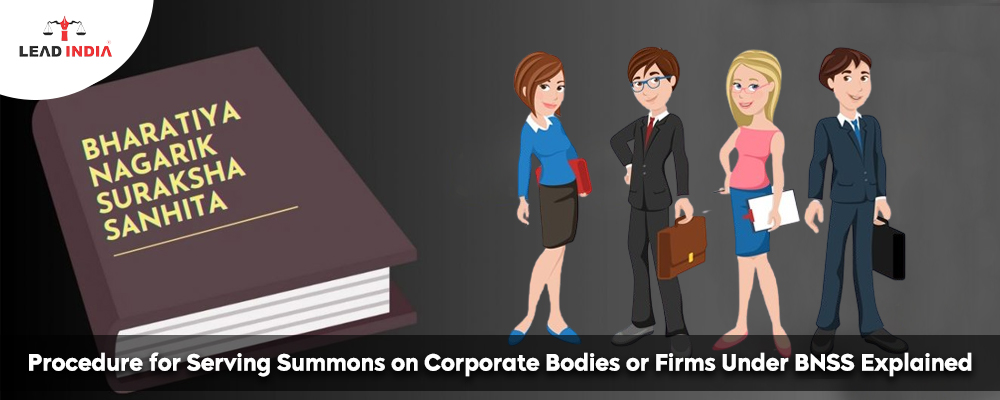A summons is a formal document that a court issues, directing someone to appear in court. Summons are usually sent to the accused or witnesses under Bharatiya Nagarik Suraksha Sanhita, 2023 (BNSS) to guarantee their attendance at court. The serving of summons under BNSS is provided under Sections 63 to 71.
A court will serve a legal document, known as a summons under BNSS, to a party involved in a lawsuit. When someone is the target of a lawsuit or needs to appear in court as a witness in a hearing, a summons is sent out. By doing this, it is guaranteed that the individual will be present on the day of the process. To ensure a fair trial, the court directs that the defendant get a summons when a plaintiff files a lawsuit against them. A summons is primarily used to inform people of the legal action and provide them a chance to offer testimony or make a case for themselves.
Need A Legal Advice
The internet is not a lawyer and neither are you. Talk to a real lawyer about your legal issue

Summons under Bharatiya Nagarik Suraksha Sanhita: Its objectives
- It is essential to inform someone of any legal action that has been brought against them.
- The opportunity to present his case and provide his perspective is granted to the defendant.
- The basis of summons is the maxim “Audi Alteram Partem,” which means “hear both sides.”
- In addition, it ensures impartial proceedings and a fair trial in conformity with natural justice principles.
- It helps to ensure that witnesses and accused parties, as well as any other parties directly or indirectly involved in litigation before the court, show up.
Why in the news?
M/S Parthas Textiles and its partner filed the application against the State of U.P. and another party. The applicants requested the revocation of a summons order dated July 27, 2023, and a non-bailable warrant dated February 8, 2024, both of which were issued in a matter governed by Section 420 of the Indian Penal Code and Section 138 of the Negotiable Instruments Act.
Issues
- If a firm is the accused in a case involving a bounced cheque, should a summons be sent to the firm or its partner or not?
- What is the new BNSS’s process for serving summonses to corporations and businesses?
Decision of the Court
- A summons should be sent to the accused firm in a case involving a bounced cheque, not the partner.
- As per Section 65 of BNSS:
- A summons for a company or corporation should be delivered to the manager, secretary, director, or other relevant officer.
- A summons for a company or other group should be sent by registered mail to each partner in the company or association or served in person to any partner in the business or association.
- The firm may choose a representative to appear on its behalf in accordance with Section 305 of the Criminal Procedure Code, the court observed after receiving the summons.
- The court partially granted the application, quashing both the summons order and the non-bailable warrant against the partner (petitioner no. 2). In light of the findings stated in the ruling, it instructed the lower court to issue a new summons order within a month.
It is also important to note that while the provisions of the CrPC were repealed with the commencement of the BNSS and Section 65 of the BNSS replaced Section 63 of the CrPC regarding the serving of summonses on companies, corporations, and firms, Section 529 of the BNSS specifies that any proceedings, trials, or applications pending at the time of the BNSS’s commencement should continue to be governed by the provisions of the CrPC.
Therefore, the court below shall proceed in this case in line with the CrPC. procedure as described under Sections 63 and 305 CrPC., even though the BNSS repealed the CrPC.
The BNSS’s summons service rules are made to make sure people are properly informed about the legal actions that are going on and have a chance to take part in them. The goal of the judicial system is to preserve the fairness and integrity of the criminal justice system by following the prescribed processes. Not only is the proper serving of a summons a legal requirement, but it is also essential to guarantee the administration of justice.
One can talk to a lawyer from Lead India for any kind of legal support. In India, free legal advice online can be obtained at Lead India. Along with receiving free legal advice online, one can also ask questions to the experts online free through Lead India.





 Talk to a Lawyer
Talk to a Lawyer